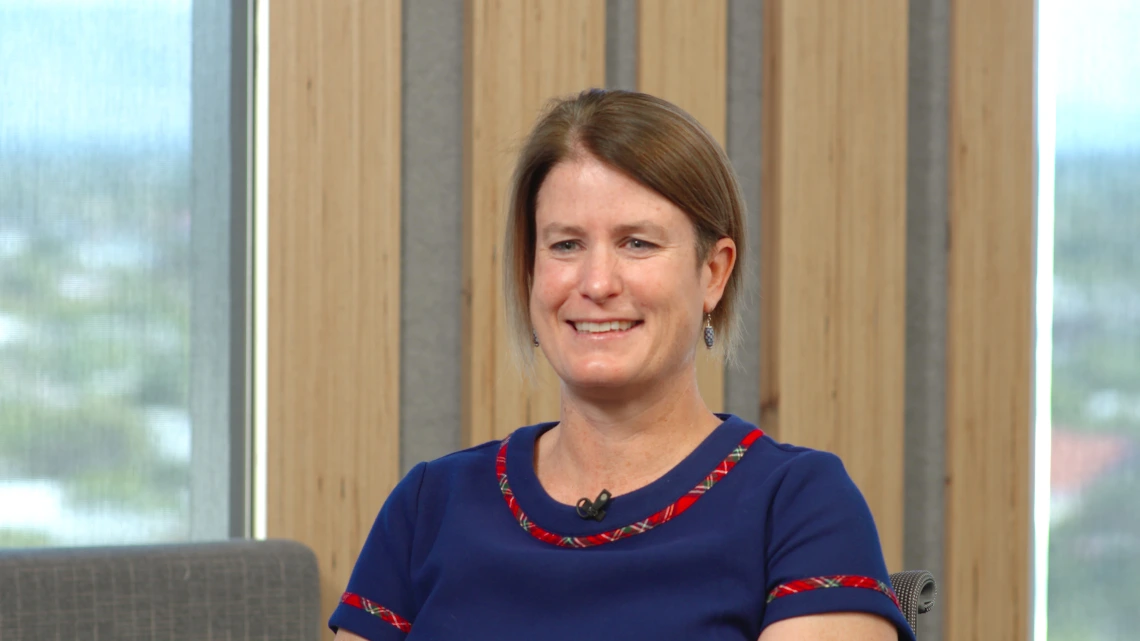Nurse Scientist on Advances in Stroke Research
Helena Morrison, PhD, RN, discusses her passion for studying the brain and her current research on stroke therapies.

What do you do at the University of Arizona Health Sciences?
I am an associate professor in the University of Arizona College of Nursing. My primary role is to lead a program of research focused on stroke science. I also teach graduate students who are either getting their Doctor of Nursing Practice or their PhD in nursing. In the lab, I mentor undergraduate students across multiple disciplines.
Why did you decide to pursue a career as a nurse scientist?
My experience becoming a scientist in nursing was derived from two different sources.
My love for physiology started when I got my bachelor's degree in animal science, but I wasn't prompted to get my PhD in animal science. Instead, I became a nurse – going back and getting a second bachelor’s degree. During that process, I loved the application of physiology to people and the human condition.
I became an Intensive Care Unit (ICU) nurse and worked at St. Joseph's Hospital in Tucson. During my time in the ICU, I realized there was only so much we could do for people and the treatment of their diseases. In particular, the stroke patients who came to the ICU were really sick, and we didn't have much to offer them except supportive care and care for their families by helping them through the process. So somewhere around there, I decided to go back to school to consume knowledge and try to develop the new knowledge that might help these patients.
What interested you about stroke research and therapeutics?
A lack of therapies drew me to stroke and brain research. Unlike other diseases that have some advancements, we still don't have a lot of therapies for stroke. Even today, there is a lack of available treatments for people with most kinds of brain injuries or brain diseases.
My goal is to contribute to that body of literature and develop discovery research on what's going on in the brain during stroke that results in brain injury. Hopefully, that research will lead to potential therapies in the future.
How would you describe your stroke research?
A stroke is an inability of blood to get to the brain. It can happen in two ways: you can either have a bleeding vessel, which causes the less common but much more deadly hemorrhagic stroke, or a blocked vessel that causes an ischemic stroke.
My research mainly focuses on ischemic stroke because it's the most common kind of stroke. For ischemic strokes, the two possible treatments are to deliver a clot buster to help break up the blockage or to use surgical intervention. Other than that, it's supportive care and then rehab therapies.
The physiology of ischemic stroke is very complex. You suffer injury from ischemia, the inadequate blood supply to your brain, but when you return the blood flow, there is something called reperfusion injury. You need blood to be returned, but some problems that started with the blockage are worsened.
If we can understand how these two events – ischemia and reperfusion – are coupled together and how they work, we can develop therapies to target the secondary injury events. If we could deliver those therapies at the time of reperfusion, we might be able to save even more brain tissue.
Does gender affect strokes?
Yes, there are some differences based on sex that have to do with biology. We know that estrogen, the female sex hormone from the ovaries, has a primary role, but it's not the only element. For example, how a stroke occurs in the postmenopausal brain may be different for premenopausal females and for males. This biological difference can impact the brain injury from a stroke.
We don’t fully understand the details. What we do know is that some experimental therapies and investigations that work in males don’t work the same way in females, and vice versa. When you're looking at potential therapies and rolling them out to a very diverse population, those therapies need to work for both sexes.
What is your latest research regarding stroke therapies?
I've been fortunate to collaborate with a local industry partner, NuvOx Pharma. We’re testing out a promising new drug in a preclinical setting. We're testing the dosing strategy and the effects on both sexes. We're also looking at comorbid conditions common to stroke and at age as the last variable. These are all important aspects of stroke – a stroke rarely happens in a completely healthy person. When we're giving therapeutics, we must consider all the different types of patient complexities.
The biggest takeaway from this new research is that there might be a new therapy. We hope along these lines continuously — that's why we do research. We are ever hopeful that we can move something into the therapeutic market.
About the Author
Helena Morrison, PhD, RN is an associate professor at the University of Arizona College of Nursing. She is working to improve stroke patient outcomes by informing novel sex-specific therapeutics.

